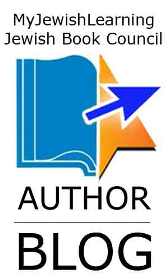Join a community of readers who are committed to Jewish stories
Sign up for JBC’s Nu Reads, a curated selection of Jewish books delivered straight to your door!
On Monday, Deborah Lipstadt wrote about eerie anniversaries. She is the author of the new book The Eichmann Trial.
 I have spent much of the past few weeks talking about my new book, The Eichmann Trial. I don’t want to make this blog entry about the book. (To be blunt, I’d rather have folks read the book.) But something has struck me in the talks and interviews I have conducted.
I have spent much of the past few weeks talking about my new book, The Eichmann Trial. I don’t want to make this blog entry about the book. (To be blunt, I’d rather have folks read the book.) But something has struck me in the talks and interviews I have conducted.
For so many people the issue of the Eichmann Trial remains Hannah Arendt. They seem to have a hard time conceiving of the Eichmann trial independent of Arendt’s “analysis.” I am speaking of who abhor what she said as well as of those who espouse her views.
I take a more “middle of the road” or balanced perspective. Let me be explicit (for nuance, you’ll have to read the book. OK, I won’t repeat that again. Twice is certainly enough. Though, please note, I wrote read, not buy). When I speak about Arendt I try to discern where my audience – whether it be one person or a multitude — stands on the issue. I then try to stress the “other” side, i.e. if they hate – and that’s not too strong a term – her words I tell them the affirmative things she had to say about the trial and Israel. If they are enthralled with her views, I point out the glaring historical mistakes on which they are based.
Sometimes that leads to trouble.
At a talk I gave at the Center for Jewish History I assumed that many of the people in the audience were familiar with all the negatives that had been said both by and about Arendt. They knew of her [c]overt antisemitic – if not racist – comments about Israeli society and of her historically inaccurate statements about the Judenrate, the Jewish councils established in the ghettoes by the Nazis.
I, chose, therefore to speak of some of the insights she had and powerful statements she made about the significance of the Holocaust. I wanted to make it clear to them that there are a lot of grays when it comes to Arendt. Sure enough, I received a number of emails and comments accusing me of having “gone soft on Arendt.”
Conversely, when I have spoken with those, whose view of the trial has been completely refracted thorough Arendt, they hear me as critical of her and have also reacted viscerally. They defend her in a knee-jerk fashion and excoriate me for being critical of her.
Wouldn’t it be refreshing if people set aside their preconceived conclusions and read what I have to say about her? (Oops, there I go again. Clearly this is the place to end this blog entry.)
Deborah Lipstadt will be blogging all week for Jewish Book Council and MyJewishLearning. Her new book, The Eichmann Trial, is available now.
Deborah E. Lipstadt is Dorot Professor of Modern Jewish History and Holocaust Studies at Emory University. Her books include The Eichmann Trial, History on Trial: My Day in Court with David Irving (a National Jewish Book Award-winner), Denying the Holocaust: The Growing Assault on Truth and Memory, and Beyond Belief: The American Press and the Coming of the Holocaust, 1933 – 1945. She lives in Atlanta.